CONTENT S
Introduction xiii
A
Active audience 1 Acculturation 2 Adorno, Theodor 2 Advertising 2 Aesthetics 3 Agency 4 Alienation 5 Althusser, Louis 6 Ang, Ien 6 Anti-essentialism 7 Archaeology 7 Articulation 8 Authenticity 9 Author 10 Avant-garde 11
B
Bakhtin, Mikhail 12 Barthes, Roland 12 Base and superstructure 12 Baudrillard, Jean 13 Bennett, Tony 14 Bhabha, Homi K. 14 Black Atlantic 14 Body 15 Bourdieu, Pierre 16 Bricolage 17 Butler, Judith 17
C
Canon 19 Capitalism 19 Carnivalesque 20 Centre for Contemporary Cultural Studies 21 Circuit of culture 22 Citizenship 23
v
City 23 Civil society 25 Class 26 viCode 27 Commodification 28 Common culture 29 Common sense 30 Communication 31 Constructionism 32 Consumption 33 Convergence 34 Conversation 35 Counterculture 36 Critical theory 36 Cultural capital 37 Cultural imperialism 38 Cultural materialism 39 Cultural policy 40 Cultural politics 41 Cultural populism 42 Cultural studies 42 Culturalism 43 Culture 44 Culture industry 46
D
De Certeau, Michel 47 Deconstruction 47 Deleuze, Gilles and Guattari, Flix 48 Deregulation 48 Derrida, Jacques 49 Determinism 49 Dialogic 50 Diaspora 51 Diffrance 52 Difference 53 Discourse 54 Discourse analysis 55 Disorganized capitalism 55
E
criture feminine 57 Emotion 57 Encodingdecoding 58
CONTENT S
Enlightenment (the) 59 Episteme 60 Epistemology 61 Essentialism 61 Ethnicity 62 Ethnocentrism 63 Ethnography 64 Experience 65 Evolutionary psychology 66
F
Femininity 68 Feminism 68 Fiske, John 69 Flneur 70 Foucault, Michel 70 Foundationalism 71 Freire, Paulo 72 Freud, Sigmund 72
G
Geertz, Clifford 73 Gender 73 Genealogy 74 Genre 74 Giddens, Anthony 75 Gilroy, Paul 76 Globalization 76 Glocalization 77 Governmentality 78 Gramsci, Antonio 78 Grand narrative 79 Grossberg, Lawrence 79
H
Habermas, Jrgen 81 Habitus 81 Hall, Stuart 82 Haraway, Donna 82 Hartley, John 83 Harvey, David 83 Hebdige, Dick 83 Hegemony 84
Hermeneutics 85 Hoggart, Richard 86 Holism 86 viiiHomology 87 hooks, bell 88 Humanism 88 Hybridity 89 Hyperreality 90
I
Ideal speech situation 92 Identification 92 Identity 93 Identity politics 95 Identity project 96 Ideological state apparatus 96 Ideology 97 Imagined community 99 Intellectuals 100 Intertextuality 101 Irigaray, Luce 102 Irony 102
J
Jameson, Frederic
K
Kellner, Douglas 10 5 Kristeva, Julia 105
L
Lacan, Jacques 106 Laclau, Ernesto 106 Language 106 Language-game 108 Liberalism 109 Life-politics 110 Logocentricism 111 Lyotard, JeanFrancois 112
M
Marx, Karl 113
CONTENT S
Marxism 113 Masculinity 115 Mass culture 115 Mass media 117 McRobbie, Angela 118 Meaning 118 Meme 120 Mens movement 120 Metaphor 121 Methodology 122 Mirror phase 122 Modernism 123 Modernity 125 Moral panic 126 Morley, David 127 Multiculturalism 127 Multimedia corporation 128 Multiple identities 128 Myth 129
N
Narrative 131 National identity 131 Nation-state 132 New Social Movements 133 New Times 134 News 135 Norm (alization) 137
O
Oedipus complex 138 Orientalism 138 Other (the) 139
P
Paradigm 141 Patriarchy 142 Performativity 142 Phallocentric 143 Place 144 Political economy 145 Politics 146 Polysemy 146
Popular culture 147 Postcolonial theory 148 Post-feminism 149 xPost-Fordism 150 Post-humanism 151 Post-industrial society 152 Positionality 154 Post-Marxism 154 Postmaterialism 156 Postmodernism 156 Postmodernity 158 Poststructuralism 159 Power 161 Power/knowledge 163 Practice 163 Pragmatism 164 Praxis 165 Psychoanalysis 166 Public sphere 168
Q
Queer theory 169
R
Race 170 Radway, Janice 171 Rationality 171 Reading 172 Realism 172 Reductionism 173 Reflexivity 174 Relativism 175 Representation 177 Resistance 178 Rhizome 178 Rorty, Richard 179
S
Said, Edward 180 Saussure, Ferdinand de 180 Self-identity 180 Semiotics 181 Sex 182
CONTENT S
Signs 183 Simulacrum 183 Soap opera 184 Social 185 Social formation 185 Space 186 Speech act 187 Spivak, Gayatri Chakravorty 187 Stereotype 188 Strategic essentialism 189 Structuralism 189 Structuration 191 Structure 191 Style 192 Subaltern 193 Subculture 193 Subject position 194 Subjectivity 194 Surveillance 195 Symbolic 196 Symbolic economy 196 Symbolic order 197 Synergy 197
T
Television 198 Text 199 Theory 199 Timespace geography 200 Truth 201
U
Unconscious 203 Under erasure 203 Urbanization 204
V
Values 206
W
West, Cornel 20 7 Williams, Raymond 207
Willis, Paul 207 Wittgenstein, Ludwig 208 Womens movement 208 xiiWriting 209
Y
Youth culture 210
INTRODUCTIO N
SPEAKING OF CULTURAL STUDIES
When I am introduced to someone I have not met before and give my name, I find I am then commonly asked what I do for a living. As a consequence, I am inevitably next asked, so, what is cultural studies? Not wanting to bore the pants off my new-found friend, I usually mumble something about it being a bit like anthropology but in industrialized cultures or liken it to the more familiar sociology, but with a stress on culture. It never feels very satisfactory but it is enough for the social talk of the occasion. However, it would not be an adequate answer in the context of a more professional intellectual inquiry. Thus, from its inception writers involved with cultural studies have been interrogated as to its character and have obligingly asked themselves the same question as my acquaintance, what is cultural studies anyway?
Though the asking of the question is understandable, it is to some extent misguided. I would suggest that when we ask about what cultural studies is we are being tricked by the grammar of everyday English language into taking a mistaken pathway. Rather, the topic is more auspiciously pursued with the query how do we talk about cultural studies and for what purposes? than by asking the question what is cultural studies?. This is so because the word is comes loaded with the assumptions of representationalism. When we ask the question what is cultural studies? the use ofis implies that such a thing as cultural studies exists in an independent object world and that we can know and name it. That is, the sign cultural studies actually pictures a substantive thing.



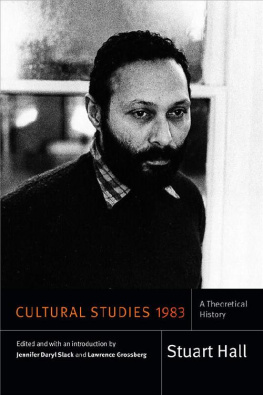
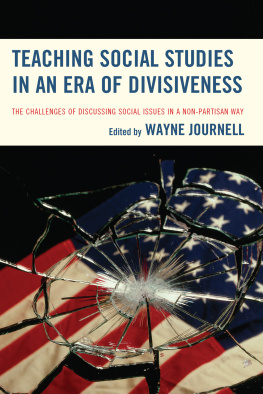
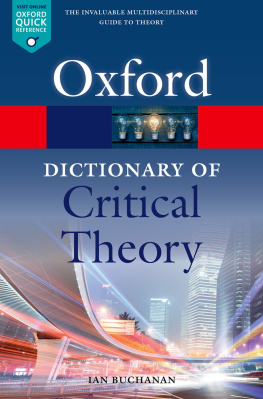
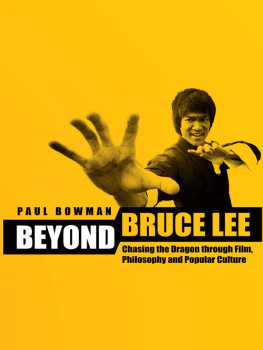
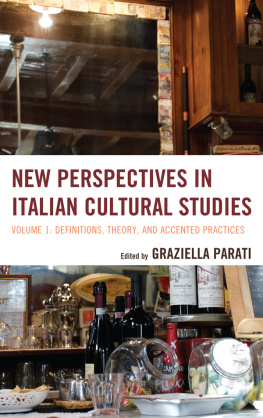
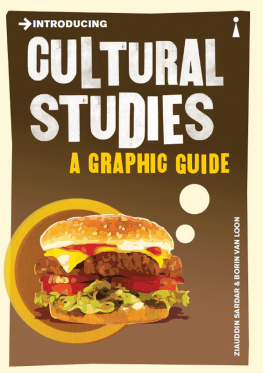

 SAGE Publications
SAGE Publications SAGE Publications Lt d 1 Olivers Yard 55 City Road London EC1Y 1SP
SAGE Publications Lt d 1 Olivers Yard 55 City Road London EC1Y 1SP